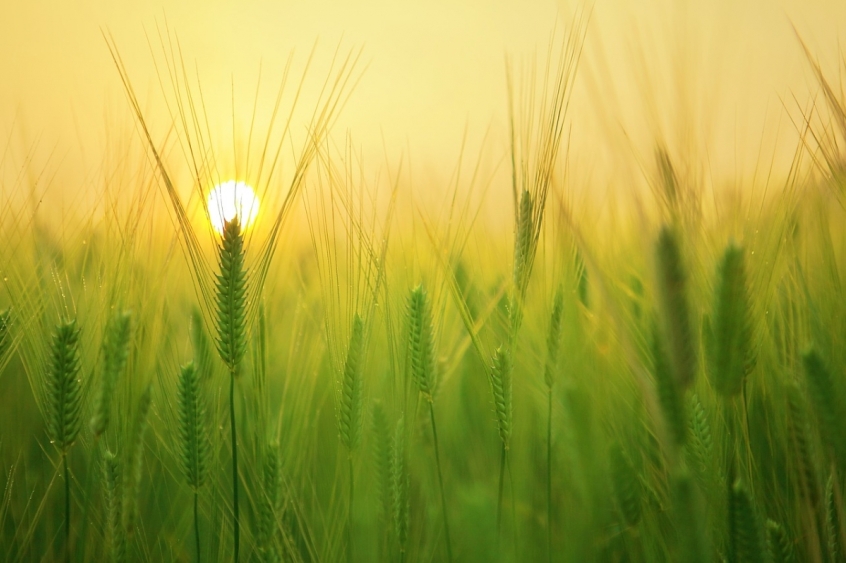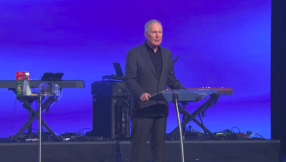
The UK has seen a sudden heatwave this week. Temperatures have been at unusually high levels – reportedly Wednesday was the hottest June day since the long hot summer of 1976.
While we have been frying, our minds turned to what the Bible has to say about weather – and what role it plays in scriptural stories. There is quite a lot of weather, it turns out.
Here are six times the weather was the key part of a biblical text...
Rain, Song of Songs 2: 11-13
This famous passage from the Song of Songs has many interpretations, but its image of a beautiful creation in harmony endures.
See! The winter is past; the rains are over and gone. Flowers appear on the earth; the season of singing has come, the cooing of doves is heard in our land. The fig tree forms its early fruit; the blossoming vines spread their fragrance. Arise, come, my darling; my beautiful one, come with me.
Cloud, 1 Kings 18: 43-45
Another famous scriptural image, often used as an illustration for having faith even when there isn't much hope.
'Go and look toward the sea,' [Elijah] told his servant. And he went up and looked.
'There is nothing there,' he said.
Seven times Elijah said, 'Go back.'
The seventh time the servant reported, 'A cloud as small as a man's hand is rising from the sea.'
So Elijah said, 'Go and tell Ahab, "Hitch up your chariot and go down before the rain stops you."'
Meanwhile, the sky grew black with clouds, the wind rose, a heavy rain started falling and Ahab rode off to Jezreel. The power of the Lord came on Elijah and, tucking his cloak into his belt, he ran ahead of Ahab all the way to Jezreel.
Snow, Job 6: 15-17
Here, Job laments his friends' unreliability in the face of his suffering, comparing them to a river after the snow melts.
'But my brothers are as undependable as intermittent streams, as the streams that overflow when darkened by thawing ice and swollen with melting snow, but that stop flowing in the dry season, and in the heat vanish from their channels.'
Storm, Jonah 1
In possibly one of the most famous storms in all literature, Jonah is caught in the midst of his escape attempt.
Then the Lord sent a great wind on the sea, and such a violent storm arose that the ship threatened to break up...
Jonah answered, 'I am a Hebrew and I worship the Lord, the God of heaven, who made the sea and the dry land.'
This terrified them and they asked, 'What have you done?'
The sea was getting rougher and rougher. So they asked him, 'What should we do to you to make the sea calm down for us?'
'Pick me up and throw me into the sea,' he replied, 'and it will become calm. I know that it is my fault that this great storm has come upon you.'
Instead, the men did their best to row back to land. But they could not, for the sea grew even wilder than before. Then they cried out to the Lord, 'Please, Lord, do not let us die for taking this man's life. Do not hold us accountable for killing an innocent man, for you, Lord, have done as you pleased.' Then they took Jonah and threw him overboard, and the raging sea grew calm. At this the men greatly feared the Lord, and they offered a sacrifice to the Lord and made vows to him.
Sun, Luke 23: 44-46
Here, during the crucifixion, the sun goes down leaving the land without light as Jesus dies.
It was now about noon, and darkness came over the whole land until three in the afternoon, for the sun stopped shining. And the curtain of the temple was torn in two. Jesus called out with a loud voice, 'Father, into your hands I commit my spirit.' When he had said this, he breathed his last.
A bit of everything, Revelation 11
In this part of Revelation the chaotic weather accompanies the judging of the dead.
The time has come for judging the dead, and for rewarding your servants the prophets and your people who revere your name, both great and small— and for destroying those who destroy the earth.
Then God's temple in heaven was opened, and within his temple was seen the ark of his covenant. And there came flashes of lightning, rumblings, peals of thunder, an earthquake and a severe hailstorm.'













